News
Tanker drivers threaten to stop petrol lifting Monday
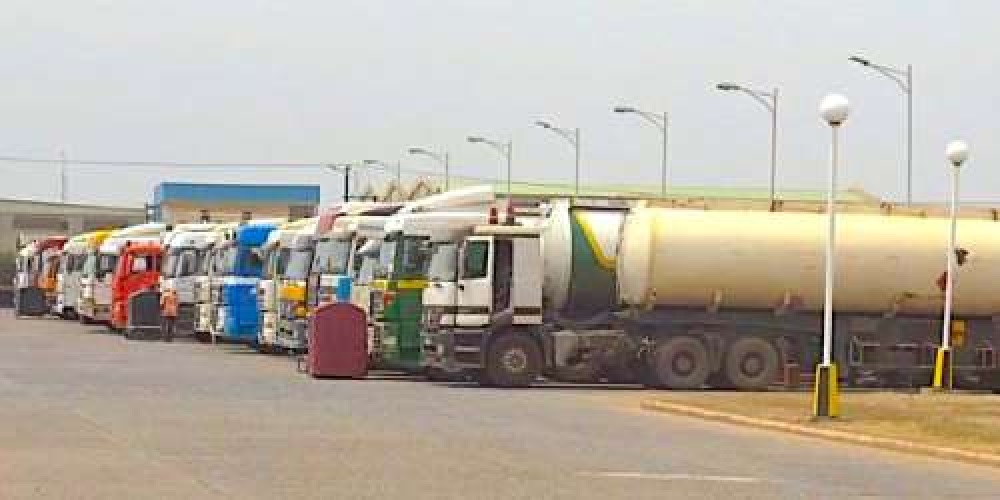
Nigeria may witness another round of fuel scarcity as the Nigerian Association of Road Transport Owners, on Thursday, vowed to stop lifting petroleum products beginning from next week Monday due to the high cost of operations.
NARTO members have repeatedly raised concern over the high cost of diesel required to power their trucks for the transportation of petroleum products across the country.
Oil marketers told our correspondent on Thursday that diesel price is between N1,250 to N1,400/litre depending on the area of purchase.
NARTO’s President, Yusuf Othman, in a statement he issued in Abuja on Thursday, said the statement was an official announcement from the association’s headquarters that members of the group would park their trucks from Monday.
“Why? It is because what we spend on operations is more than what we get in total, both in local and bridging,” he stated.
Othman said NARTO members had being operating at a loss and it was no longer sustainable for them to endure the losses.
“We will have to suspend operations latest from now till on Monday. We cannot continue to operate at a loss. Most people have parked. A lot more are going to park. But from the point of the association itself, we are going to suspend operations on Monday,” he stated.
He said NARTO’s efforts to get the intervention of key stakeholders, the Federal Government and industry operators had not yielded positive results.
The NARTO president said the association had written letters on the unbearable cost of operations to the Chief of Staff to President Bola Tinubu; Minister of Petroleum Resources; Department of State Services; Nigerian Midstream and Downstream Regulatory Authority; Nigerian National Petroleum Company Limited; and oil marketers.
“We have written letters up to the level of the Chief of Staff to the President. We have written to the Minister of Petroleum Resources (Oil). We have written to the Director-General of SSS. We have written to NNPC’s boss. We have written to the NMDPRA. We have written to the major marketers,” Othman stated.
He stressed that despite the letters, there has been “no response.”
Analysing the market situation, which the members have endured for several months, he stated that the same freight rate that applied when former President Muhammadu Buhari was in ruling, was still subsisting.
“The Lagos to Abuja freight rate that was implemented when the dollar was N650 is still retained now that dollar is N1,615. Everybody is aware that all our consumables in terms of operation are not produced in the country.
“So, by virtue of the rate of dollars, every consumables has increased. But the freight they are paying us has been the same since Buhari’s time. So how is that feasible? During Buhari’s time, one dollar was N650. Today, dollar is N1,615. The average freight from Lagos to Abuja is N32,” he stated.
Othman further explained that “what I mean by local is that when you load in Lagos, you discharge in Lagos. And bridging means that when you load from Lagos, you come to Abuja. Lagos to Lagos, we are paid N120,000.
“AGO (diesel) alone to distribute fuel within Lagos is N140,000 because it is N1,400/litre. So, they give you N120,000 and you spend N140,000. So how do you want to operate? You’ve not talked about the cost of vehicles, cost of loading, driver’s allowance. That is for local.”
He stated that the cost of moving products out of Lagos or Warri to other states was far higher than what the government was paying to tanker drivers as bridging claims.
The government pays an agreed sum to transporters of petroleum products as bridging claims in order to ensure equality in the pump prices of these products across states, though this has not been the case.
NARTO is the umbrella organisation for commercial vehicle owners in Nigeria. The association represents the interests of those involved in haulage of petroleum products, general cargoes and passenger movement within the country and the West African sub-region.
NARTO has expressed several concerns regarding transporting petroleum products in Nigeria, impacting both their members and the overall efficiency of the process.
It has complained of poor road conditions, as frequent potholes, dilapidated bridges, and lack of proper maintenance lead to increased wear and tear on vehicles, higher running costs and longer journey times.
The association has also raised concern about traffic congestion, particularly around ports and depots, as this adds significantly to delivery delays and further increases operational costs.
On inadequate parking facilities, NARTO had stated that the lack of safe and designated parking areas often forced drivers to park in unsafe locations, leading to security risks and fatigue.
It had also raised concerns about the multiple checkpoints in Nigeria, as numerous security checkpoints could cause unnecessary delays and harassment for drivers.
Another issue is delayed payments, as late payments from oil marketers create cash flow problems for transporters.
Also the association has called for safety, because the theft of petroleum products, pipeline vandalism and other security threats create risks for drivers and equipment.
On policy and regulatory concerns, NARTO had observed that some depots limit access to specific transporters, impacting competition and efficiency.
It had stated that inconsistent or ambiguous regulations could lead to confusion and enforcement challenges, adding that transporters often struggled to access affordable financing for vehicle maintenance and upgrades.
News
OERAF Rounds Up Late Chief Ekuogbe Rowland Akpodiete’s remembrance with Novelty Match
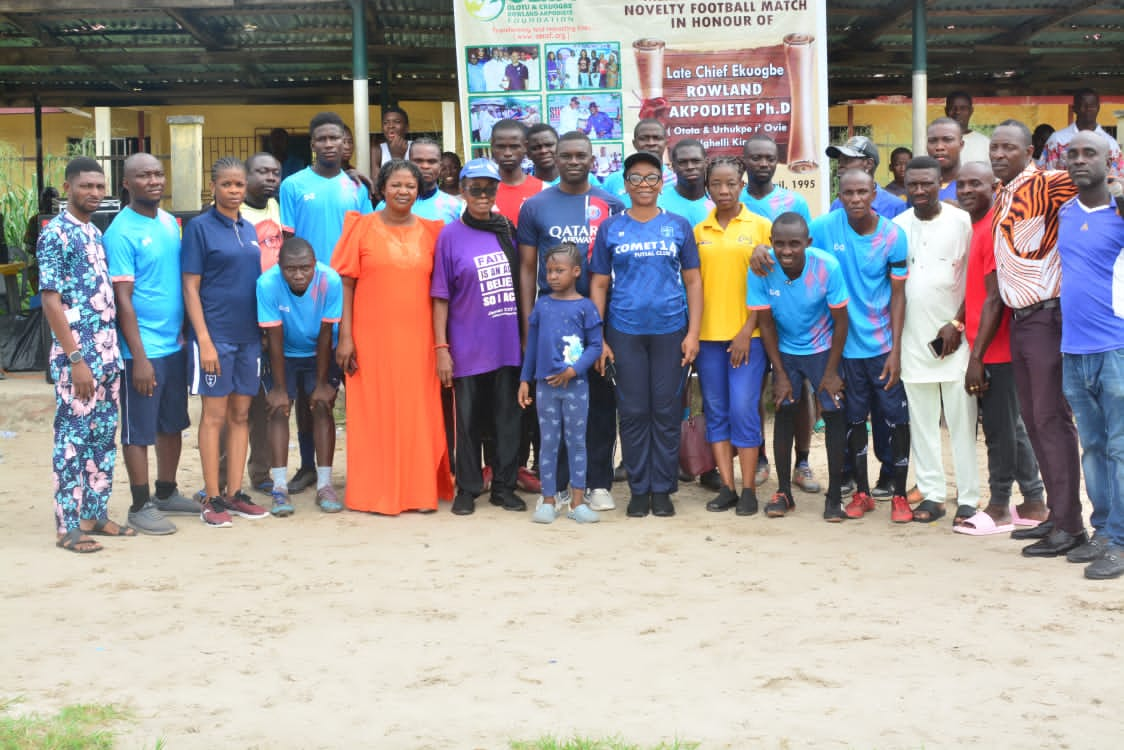
By Kennedy Atevure
Olotu & Ekuogbe Rowland Akpodiete Foundation (OERAF) rounded up the remembrance of late Chief Ekuogbe Rowland Akpodiete, Ph.D., with a novelty match at Ughelli Public Field on April 11, 2025.
Speaking shortly after the match, Dr. Olotu Otemu Akpodiete appealed to the Ughelli North Local Government Council Vice Chairman’s representative for the council to upgrade the field to a mini stadium.
Dr. Akpodiete stressed that Ughelli Public Field has been in existence since before the state government built the Ughelli Township Stadium.
The novelty match, which ended in a 1-1 draw, thrilled everyone who watched it.
The team of the children of late Chief Ekuogbe Rowland Akpodiete, Ph.D., scored the first goal, which was equalized by the grandchildren’s team through a penalty kick.
Dignitaries present during the novelty match included Hon. Chief (Mrs.) Meg Atano, Ughelli North Local Government Council Vice Chairman, ably represented by Pst. (Mrs.) Rita Nyewhoema; Evang. Nicolas Evwienure; Mrs Efe Akpodiete -Minabowan Barr. Agboka Akpodiete-Omale; Hon . Felix Uloho, Chief Grace Akpodiete; and Mr. Kennedy Otega (Big Daddy), among others.
Other highlights of the event included the presentation of cash prizes to both teams and a group photograph with light refreshments.
News
Senate President moves to build capacity for Senate Clerk, other officials for efficient performance

In a deliberate bid to build capacity for the Senate Clerk and other officials of clerks-at-the-table, the Senate President, Godswill Akpabio has encouraged refresher courses for such officials to bolster their performance levels for efficiency and effectiveness.
The first to benefit from the initiative was the Clerk of the Senate, Mr Andrew Nwoba, who just rounded off his one-month refresher course on Thursday, April 10, 2025 and is due to resume at his desk in plenary when they reconvene, 29th April, 2025.
This positive development is contrary to media reports on Thursday, April 10, 2025, insinuating that the Senate President passed a vote of no confidence in Mr Nwoba’s capacity to properly guide the upper legislative chamber during the sittings.
An official of the National Assembly said that the President of the Senate, in his leadership consideration, magnanimity and support for top officials of the Senate and other staff members, approved a refresher course for the Clerk Senate, Andrew Nwoba.
The approval was to free him from his responsibilities in the chamber for a month. The Deputy Clerk (legislative) acted in his absence.
Reports said that having served creditably as Clerk of National Population and Gas committees, Secretary, Legislative Budget and currently, Clerk Senate, Mr Nwoba has garnered requisite experience to proactively guide and advise on adherence and compliance with the Standing Rules of the Senate.
Besides, staff members agree that Nwoba has efficiently and responsibly discharged his role as the Chief Accounting Officer of the Senate.
As Senate Clerk, Nwoba ensures smooth proceedings in line with procedural orders that are circumscribed in the Standing Rules of the Senate.
In addition to ensuring legislative due process through the eyes of the rules, he also discharges other administrative duties.
The Clerk Senate performs these overarching assignments with the assistance of two Deputy Senate Clerks, one in charge of legislative duties and the other in charge of administration.
An official explained that the refresher course could hold any time and would not disrupt the workings of the clerks-at-the-table since there are enough hands, particularly, Deputy Clerk (Legislative), to deploy in plenary to guide, direct and advise the presiding officer in his absence.
As learnt, Nwoba, has been doing this by allowing the Deputy Clerk (Legislative) to help guide, direct and advise the presiding officer, and the synergy has been adjudged to be “progressive and productive.”
Another official said in a chat that “It is most unfortunate, that some naysayers want to create bad blood between the President of the Senate and the Clerk of the Senate by making tenuous utterances and unfounded insinuations.
“The Clerk of Senate has been enjoying the support of the Senate President. He particularly received his unequivocal support during his elevation to the position by the National Assembly service Commission. The Clerk, in turn, has tremendous respect and regards for the President of the Senate, his leadership style, his listening ears, his simple nature, which are qualities that are rare in today’s political space.
“Out of his concern for the Senate Clerk, considering his zeal, determination, dedication and passion for the job, the Senate President respectfully asked him to go for a month refresher course to enhance top-notch performance and greater efficiency. This, for me, is the real vote of confidence in the Clerk Senate.”
News
NDLEA destroys largest seizure of 1.6m kilograms illicit drugs seized in Lagos, Ogun, Oyo
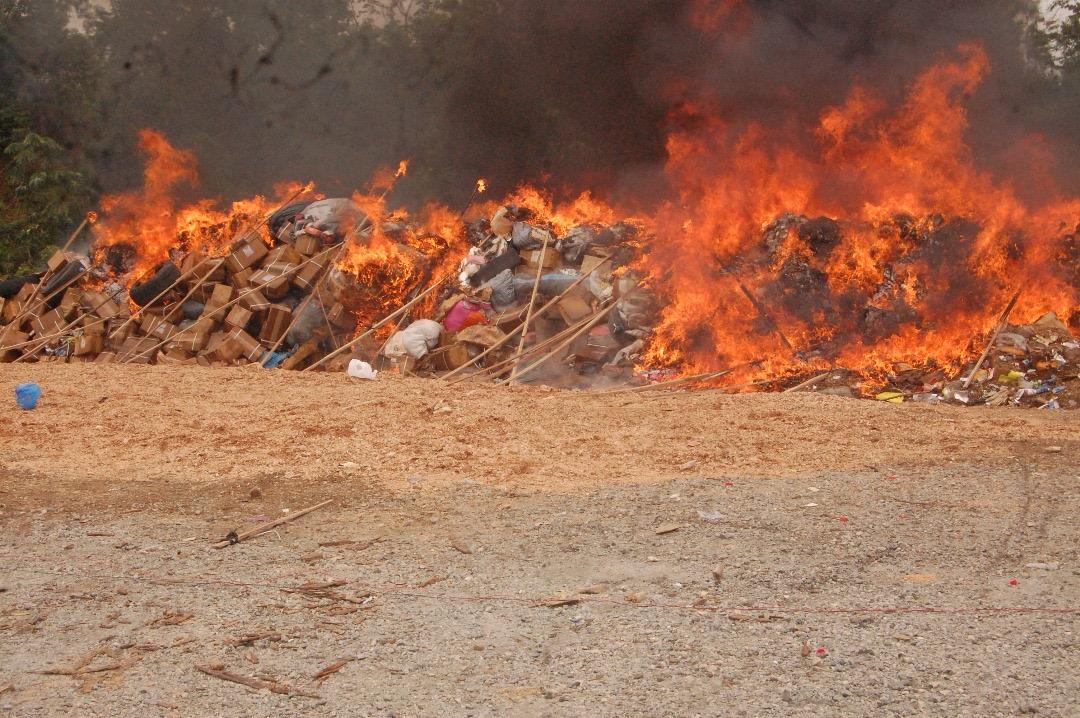
. Times have changed, we’re fully prepared to hold those who defy the law accountable, Marwa warns barons, traffickers
The National Drug Law Enforcement Agency, NDLEA, has destroyed heaps of illicit drugs weighing about 1.6 million kilograms of assorted illicit substances seized across Lagos, Ogun and Oyo state, in what is till date the largest volume of seizures to be set ablaze at a time in the history of the Agency.
The public destruction of the illicit substances witnessed by representatives of government officials, traditional rulers, clergymen, other security agencies, international partners, NGOs and community leaders, among others, was conducted at an isolated location at Ipara, along Lagos-Ibadan expressway, Ogun state on Saturday 12th April 2025. Some of the illicit drugs destroyed include 123 kilograms of cocaine; 46.8 kilograms of heroin; 1.4 million kilograms of cannabis; 148,000 kilograms of codeine syrup; 3,244.26 kilograms of tramadol; 1,544 kilograms of skuchies; and 111 kilograms of methamphetamine, among others.
Speaking at the occasion, Chairman/Chief Executive Officer of NDLEA, Brig Gen Mohamed Buba Marwa (Rtd) said the exercise is a testament to the Agency’s steadfast commitment to tackling the scourge of drug trafficking in the country. “The sheer volume of seizures, which totals approximately 1.6 million kilograms, serves as a reminder of the grave danger these substances pose to public health until they are completely and irreversibly destroyed. The National Drug Law Enforcement Agency (NDLEA) operates under a clear mandate to reduce these narcotics to rubble. At all times, we discharge this duty with the utmost seriousness and diligence”, he stated.
He warned those involved in drug trafficking that the times have changed and there will be no breathing space or any safe haven for them in Nigeria. In his words, “To those still involved in the illicit drug trade, we will persist in reminding them that times have changed. The administration of President Bola Ahmed Tinubu remains unwavering in its commitment to providing the leadership and political will required to eradicate this menace. At the NDLEA, we are fully prepared to pursue our objective of holding accountable those who defy the law. In the past four years, we have successfully prosecuted and got convicted 10,572 such offenders, who are now serving various jail terms.”
He expressed appreciation to Governor Babajide Sanwo-Olu of Lagos, Governor Dapo Abiodun of Ogun and Governor Seyi Makinde of Oyo for their support for the Commands and operations of the Agency in their respective states.
The NDLEA boss who was represented at the occasion by the Agency’s Director of Assets and Financial Investigation (DAFI), Dr. Ibrahim Abdul, justified the public destruction of the confiscated drugs.
“The rationale is simple: to show transparency and accountability. By making this process open, we affirm our collective resolve against the insidious activities of illicit drug trafficking. This exercise is not merely symbolic—it is forensic, grounded in evidence. Random laboratory tests are carried out to confirm the authenticity of the seized items. The substances are destroyed with the approval of the court after the cases linked to them have been brought to closure, following arrests and successful prosecution”, he stated.
He said the event represents a significant milestone in the history of the Agency because “It is the public destruction of the largest seized narcotics across a spectrum of commands under NDLEA Zone 9 and Zone 11, which comprise the Lagos Strategic Command, Ogun State Command, Oyo State Command, MMIA Strategic Command, Lagos Seaports, Idiroko Border Command, and Seme Border Command”, adding that “while this accomplishment reflects our determination, it also underscores the scale of the challenge we continue to face.”
While commending the unwavering dedication of our officers, “who are working tirelessly to ensure that we do not fail in our assigned task of curbing illicit drug trafficking”, Marwa thanked both local and international partners who have continued to contribute to the success of the work of the Agency.
“Likewise, our international partners—such as the United States Drug Enforcement Administration (US-DEA); International Narcotics and Law Enforcement Bureau (INL) of the US; United Kingdom Border Force; National Crime Agency (NCA) of the UK, the French Police; the German Police, and others—who are playing pivotal roles in bolstering our efforts. I am also deeply grateful to First Bank of Nigeria, Fidelity Bank, Sterling Bank, and other stakeholders including the Nigerian Military, Customs, Police, Civil Defence, Immigration, FRSC, NAFDAC, and a host of others for their support, embodying the collaborative spirit necessary for effective drug control in society”, he added.
In his remark at the ceremony, Ogun state governor, Prince Dapo Abiodun represented by his Special Adviser on Security, AIG Olusola Subair (Rtd) commended the efforts of the leadership and personnel of NDLEA for their courage, professionalism, consistent efforts in intercepting illicit drugs before they get to communities and streets.
“Their work in saving lives, in strengthening communities and upholding the rule of law is well appreciated”, he stated, adding that the state government remains a committed partner in the fight against drug-related crime.
While noting that the drug scourge is a social, economic and public health crisis, Governor Abiodun said “We must invest in prevention through education, through counseling and youth empowerment initiatives. We must strengthen rehabilitation centres and provide support systems for those battling addiction.”
-

 News20 hours ago
News20 hours agoConstituents Drag Akpabio, Senate to Court Over Suspension of Natasha
-
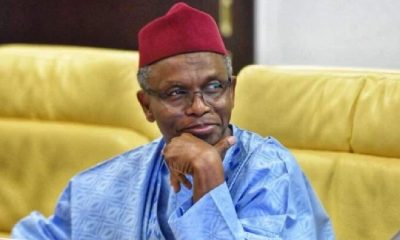
 News6 hours ago
News6 hours agoWe only had lunch with Buhari not 2027 politics -El-Rufai
-

 News19 hours ago
News19 hours agoFCT minister, Wike gives land allotees 21 days to pay or lose offer
-
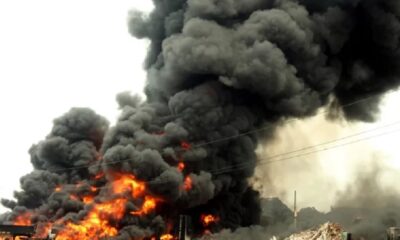
 News6 hours ago
News6 hours agoSad! Explosion rocks Lagos
-

 News6 hours ago
News6 hours agoParts of Abuja, Niger in total darkness -AEDC confirms
-
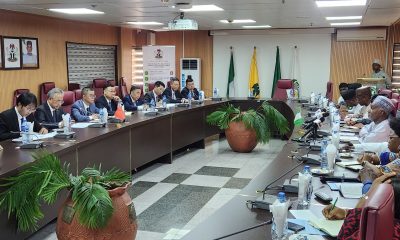
 News20 hours ago
News20 hours agoNigeria-China Reaffirms Commitment To Strategic Partnership
-
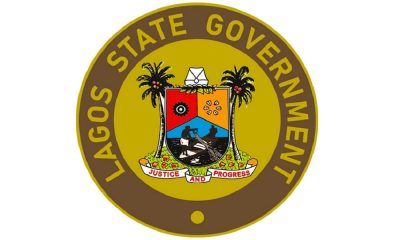
 News23 hours ago
News23 hours agoCoastal Road: Lagos govt demolishes illegal structures along Lekki waterfronts
-
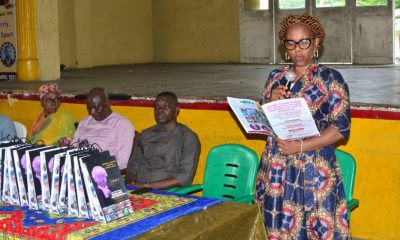
 News20 hours ago
News20 hours agoOERAF Holds Memorial Lecture on the Benefits of Debate Competitions for Students in Ughelli





